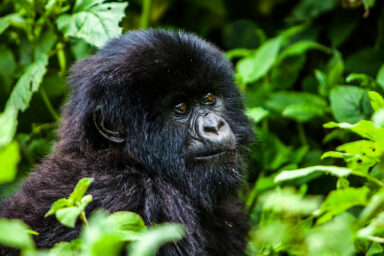UAW Wins Last-Minute Deal at Daimler Truck, Averting a Strike
PICKS are stories from many sources, selected by our editors or recommended by our readers because they are important, surprising, troubling, enlightening, inspiring, or amusing. They appear on our site and in our daily newsletter. Please send suggested articles, videos, podcasts, etc. to picks@whowhatwhy.org.
|
Listen To This Story
|
UAW Wins Last-Minute Deal at Daimler Truck, Averting a Strike (Maria)
The author writes, “Just 65 minutes before the UAW’s contract with Daimler Truck North America was due to expire, standing in front of who he called the ‘badass bargaining committee,’ union president Shawn Fain announced a historic deal averting a strike by more than 7,000 workers at facilities in North Carolina, Georgia and Tennessee. The four-year agreement includes raises of more than 25%, the end of wage tiers and the introduction of profit-sharing and cost-of-living raises for the first time since Daimler workers first organized with the UAW.”
Rooting for Trump To Fail Has Made His Stock Shorters Millions (Reader Steve)
The author writes, “Rooting for Donald Trump to fail has rarely been this profitable. Just ask a hardy band of mostly amateur Wall Street investors who have collectively made tens of millions of dollars over the past month by betting that the stock price of his social media business — Truth Social — will keep dropping despite massive buying by Trump loyalists and wild swings that often mirror the candidate’s latest polls, court trials and outbursts on Truth Social itself.”
FCC Restores Net Neutrality Rules That Ban Blocking and Throttling in 3-2 Vote (DonkeyHotey)
The author writes, “The Federal Communications Commission voted 3–2 to impose net neutrality rules [last week], restoring the common-carrier regulatory framework enforced during the Obama era and then abandoned while Trump was president. The rules prohibit Internet service providers from blocking and throttling lawful content and ban paid prioritization. Cable and telecom companies plan to fight the rules in court, but they lost a similar battle during the Obama era when judges upheld the FCC’s ability to regulate ISPs as common carriers under Title II of the Communications Act.”
How $1.2 Billion In NYPD Civil Litigation Case Settlements and Monetary Awards Went Unreported (Dana)
From City & State: “A years-long investigation of public records obtained under Freedom of Information laws by City & State found that [12,749] cases filed against the New York Police Department that were settled or awarded monetary verdicts from January 2013 through December 2023 were never mentioned in litigation outcome summaries required bi-annually from the Law Department under legislation passed into law by the City Council. The same analysis found that settlements and awards that took more than five years, from filing to conclusion, were not reported. Nor have settlements been shared stemming from court actions filed prior to January 1, 2013.”
Plastics Industry Heats World 4 Times as Much as Air Travel, Report Finds (Laura)
The author writes, “Pollution from the plastics industry is a major force behind the heating of the planet, according to a new report from the federal government. The industry releases about four times as many planet-warming chemicals as the airline industry, according to the paper from scientists at the Lawrence Berkeley National Laboratory. Its emissions are equivalent to those of about 600 coal plants — about three times the number that exist across the U.S.”
Can AI Help Solve Japan’s Labor Shortages? (Gerry)
From the BBC: “A shrinking population means Japan has a shortage of workers. Many are hoping that artificial intelligence (AI) can pick up the slack. In a country that is known to be obsessed with perfection, damaged or misshapen vegetables and fruits are hard to sell. And if you are a specialist maker of Japanese dumplings, like the brand Osaka Ohsho, then selling a packet of gyoza with some damaged is a big no-no. But as demand surged during the pandemic, its parent firm, Eat&Holdings, simply didn’t have enough manpower to check every single dumpling. … In January 2023, it opened a high-tech factory equipped with AI-powered cameras trained to detect any faulty gyoza on the production lines. Today this facility makes two dumplings every second. That’s twice the speed of the other Osaka Ohsho production sites.”
Can You Really Run on Top of a Train, Like in the Movies? (Reader Jim)
From Wired: “Just because you see something done in a movie, that doesn’t mean you should try it yourself. Take, for example, a human running on top of a moving train. For starters, you can’t be sure it’s real. In early Westerns, they used moving backdrops to make fake trains look like they were in motion. Now there’s CGI. Or they might speed the film up to make a real train look faster than it really is. So here’s a question for you: Is it possible to run on a train roof and leap from one car to the next?”




